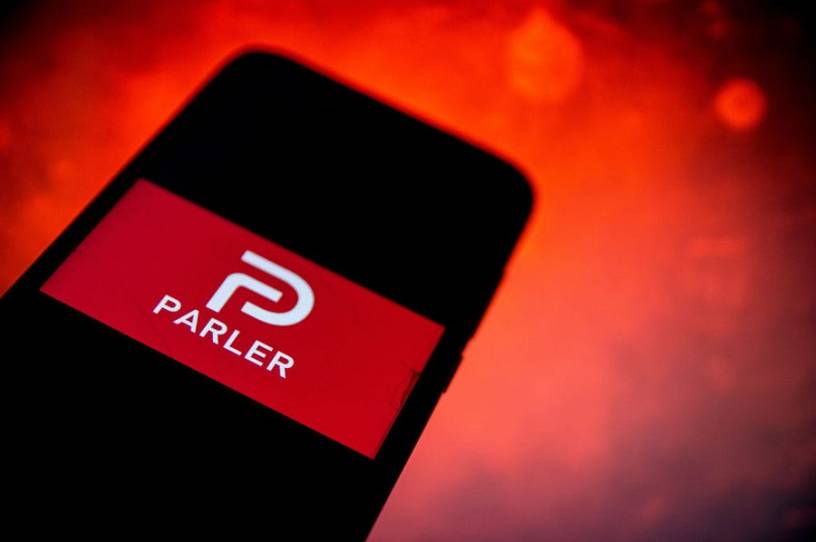Why Parler’s Lawsuit Is Bound to Fail

I have never been a free speech absolutist. I am, however, somewhat closer to being a First Amendment absolutist.
Many free speech absolutists don’t like this distinction because they think the First Amendment should guarantee the ability to express yourself in virtually any manner you like, in any setting. But that’s simply not what it says. The First Amendment, like the rest of the Bill of Rights, constrains what the federal government can do. That’s why it says, “Congress shall make no law … abridging the freedom of speech, or of the press.”
The government can’t police your speech. The exception to this, worked out in the courts and by statute, is that you can’t incite violence. Under the Supreme Court’s Brandenburg v. Ohio decision, you can even tell an armed crowd that violence is necessary. What you can’t do is advocate “imminent lawless action” with speech that “is likely to incite or produce such action.”
“We need to shoot all left-handed people” is OK. “Look, over there: That guy is writing with his left hand! Shoot him now before he gets away!” not so much.
This is a radically libertarian approach to expression. The U.K., which has a robust tradition of free speech, doesn’t come close to this. Under the British Human Rights Act 1998, “Everyone has the right to freedom of expression.” But the law also says such freedom “may be subject to formalities, conditions, restrictions or penalties as are prescribed by law and are necessary in a democratic society.”
That’s not the American way.
It is a standard—and correct, in my opinion—talking point among many social conservatives to note that the Founders believed our system could only work with a virtuous people. “Virtue or morality is a necessary spring of popular government,” George Washington observed. Benjamin Franklin declared: “Only a virtuous people are capable of freedom.” James Madison stated: “To suppose that any form of government will secure liberty or happiness without any virtue in the people is a chimerical idea.”
Usually, conservatives invoke such observations during debates about religion, culture and the importance of good character. “There is no liberty,” the 19th century minister Henry Ward Beecher insisted, “to men who know not how to govern themselves.”
This principle has more bearing on free speech than many realize. You may have the right to shout racial epithets or call for violence, that doesn’t mean you should. Private institutions, and even some public ones, can and should discourage such behavior. Schools, churches, the Boy Scouts, even book clubs have a right (and obligation) to say, “Knock it off,” or, “Not here.” That’s the First Amendment, too. You have no right to hang a Confederate flag on my house.
The way we encourage good character is by letting the nongovernmental institutions of civil society police bad behavior. So while you have the right to advocate race war and insurrection, you don’t have the right to do it at a Wendy’s if the management doesn’t approve.
The social media platform Parler was launched by right-wingers angry at Twitter and Facebook for policing speech on their sites. After the storming of the U.S. Capitol on Jan. 6, Amazon Web Services (AWS) notified Parler that it was removing the site from its cloud hosting service. Parler is suing.
Amazon claims, very plausibly, that Parler was being used by jackasses to foment violence and hatred. Here are a few examples from Amazon’s court filing: “We are going to fight in a civil War on Jan. 20th, Form MILITIAS now and acquire targets.” … “Shoot the police that protect these s**tbag senators right in the head then make the senator grovel a bit before capping they a**.” … “White people need to ignite their racial identity and rain down suffering and death like a hurricane upon zionists.”
According to Amazon’s contract, AWS clients can’t host speech that “violate[s] the rights of others, or that may be harmful to others.” Parler claims it tried to restrict such speech. That remains disputed. But whether or not it tried, Amazon says Parler was simply unable to do it, particularly as evidenced by the massive backlog of flagged posts in the wake of the Jan. 6 siege.
I don’t care if the posts fall short of the Brandenburg standard, because Amazon isn’t the government. Under the First Amendment, Amazon is free to say, “We want no part of this.” If a diner can say, “No shirt, no shoes, no service,” Amazon can say, “No calls for civil war or genocide.”